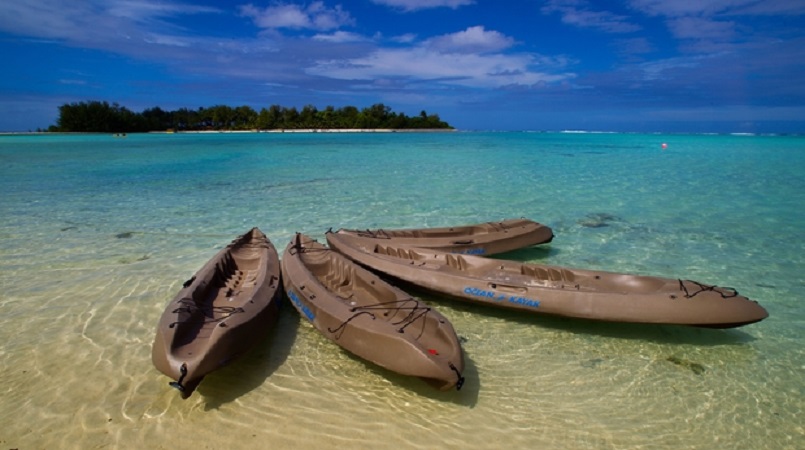
Heads of national tourism offices from 15 Pacific island countries met in Rarotonga, Cook Islands earlier this week for the yearly board of directors meeting of the South Pacific Tourism Organisation.
With ‘sustainable tourism’ as the theme of the three-day meeting, sustainability has been at the forefront of discussions.
More than a buzz-phrase, Pacific island countries are increasingly embracing and adopting sustainable tourism practices, with the host Cook Islands using the platform of the meetings to launch the country’s sustainable tourism policies at the prime minister’s welcome event.
However, while there has been substantial movement in this area, sustainable tourism has not been fully mainstreamed into national and international policy discussions. Thus, coordinated and extensive efforts need to be undertaken to raise awareness among policy makers and the public of the vital role sustainable tourism can play in all three dimensions of sustainable development – economic, social and environmental – as well as in achieving the objectives of the post-2015 development agenda.
One such opportunity is the United Nations International Year of Sustainable Tourism for Development 2017 (IYST2017). Two years ago at their meeting in Tahiti, the SPTO directors had endorsed the United Nations initiative on sustainable tourism to declare 2017 as IYST2017.
As part of their commitment, the directors agreed at the meeting to:
i. promote Pacific Island Countries participation in this global event at the national level;
ii. designate a national tourism event to celebrate and promote IYST; and
iii. endorse SPTO’s planned initiatives to promote the IYST 2017.
“Through the establishment of its new Sustainable Tourism Development Division, SPTO has continued its advocacy role to promote the economic and social contribution of sustainable tourism, the conservation of our environment, protection of our cultures, and the development of business opportunities for tourism private sector,” said Chris Cocker, chief executive officer of SPTO.
Coming up in 2017, SPTO will mark IYST in a number of ways: via a special event at its annual tourism marketing forum South Pacific Tourism Exchange in Sydney in May; at a side event at its board and ministers meetings next year; and by incorporating IYST in workshops, conferences and its usual activities.
“The International Year of Sustainable Tourism for Development also provides an opportunity for our national tourism offices to work with the private sector tourism partners in their countries to raise awareness of sustainable tourism and work together towards regional sustainable development goals,” said Sonja Hunter, chief executive officer of Samoa Tourism Authority and chairperson of the SPTO board.
It is not the first time that the UN has recognised sustainable tourism as a key point for the future of the planet and for its development. Tourism is included in three of the Sustainable Development Goals:
SDG 8: Promote sustained, inclusive and sustainable economic growth, full and productive employment and decent work for all;
SDG 12: Sustainable Consumption and Production; and
SDG 14: Conserve and sustainably use the oceans, seas and marine resources for sustainable development.
The United Nations World Tourism Organisation defines sustainable tourism as tourism that meets the needs of present tourists and host regions while protecting and enhancing opportunity for the future. Rather than being a type of product, it is an ethos that underpins all tourism activities.
As such, it is integral to all aspects of tourism development and management rather than being an add-on component. The objective of sustainable tourism is to retain the economic and social advantages of tourism development while reducing or mitigating any undesirable impacts on the natural, historic, cultural or social environment. This is achieved by balancing the needs of tourists with those of the destination.
SPTO is the region’s peak tourism development and marketing body.
